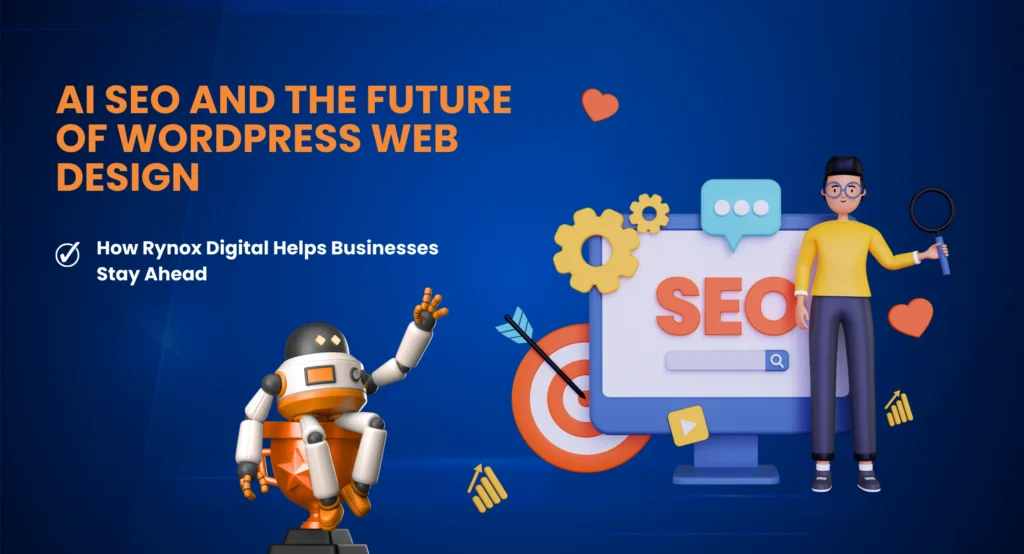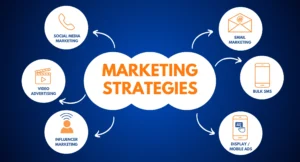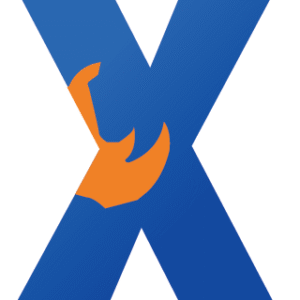Introduction
The digital world is entering a new era—one where artificial intelligence is reshaping how people search, discover, and interact with websites. For years, traditional SEO practices like keyword optimization, backlinks, and metadata determined which businesses appeared at the top of search results. But with the rise of AI-powered search engines such as Google’s Search Generative Experience (SGE), Microsoft’s Bing AI, and even conversational platforms like ChatGPT, the rules of the game are changing.
Today, it’s not just about ranking higher—it’s about becoming the trusted source that AI assistants recommend to users directly. Businesses that adapt to AI SEO early will gain a powerful advantage, while those who stick to outdated tactics risk being left behind.
At Rynox Digital, we’ve seen firsthand how these changes are transforming the way websites need to be designed, optimized, and presented. As a leading WordPress web design agency, we help businesses future-proof their online presence by blending cutting-edge AI SEO strategies with proven WordPress expertise.
In this article, we’ll explore the future of AI SEO, why WordPress remains the best platform for success, and how Rynox Digital helps businesses not only stay visible—but thrive—in an AI-first search era.
Understanding AI SEO and Its Impact on Businesses
Artificial Intelligence is changing the way search engines work—and with it, the way businesses must think about online visibility. Traditional search engine optimization (SEO) focused heavily on keywords, backlinks, and ranking signals that helped websites climb the results page. But now, AI-powered search engines, including Google’s Search Generative Experience (SGE), Bing AI, and even platforms like ChatGPT, are introducing a new era where search results are driven by context, intent, and relevance rather than just keywords. This shift is known as AI SEO.
What is AI SEO?
AI SEO refers to the practice of optimizing your website so that artificial intelligence algorithms can easily understand, index, and recommend your content. Instead of only focusing on how Google’s algorithm crawls pages, AI SEO takes into account how machine learning models evaluate your website’s expertise, trustworthiness, and usefulness.
For example, when someone asks an AI assistant a question like “What’s the best WordPress agency for small businesses?”—the AI won’t just pull up a list of links. It will generate an answer based on trusted content, structured data, and context it has learned. Websites that are well-optimized for AI are more likely to be included in that generated response.
Traditional SEO vs. AI-Driven SEO
In traditional SEO, success was tied to:
- Keyword optimization
- Backlink building
- On-page SEO (titles, meta descriptions, headers)
- Page load speed and technical health
With AI SEO, while these elements are still important, the focus expands to:
- Search intent matching → Answering user questions directly and in detail.
- Conversational content → Writing in a natural, human-like tone that mirrors how people ask AI assistants questions.
- Entity recognition → Making sure your brand, services, and expertise are clearly defined with schema markup and structured data.
- Authority signals → Consistently publishing high-quality, trustworthy content that AI models can cite.
This means businesses that only rely on old-school SEO tactics risk losing visibility as AI increasingly dominates the search experience.
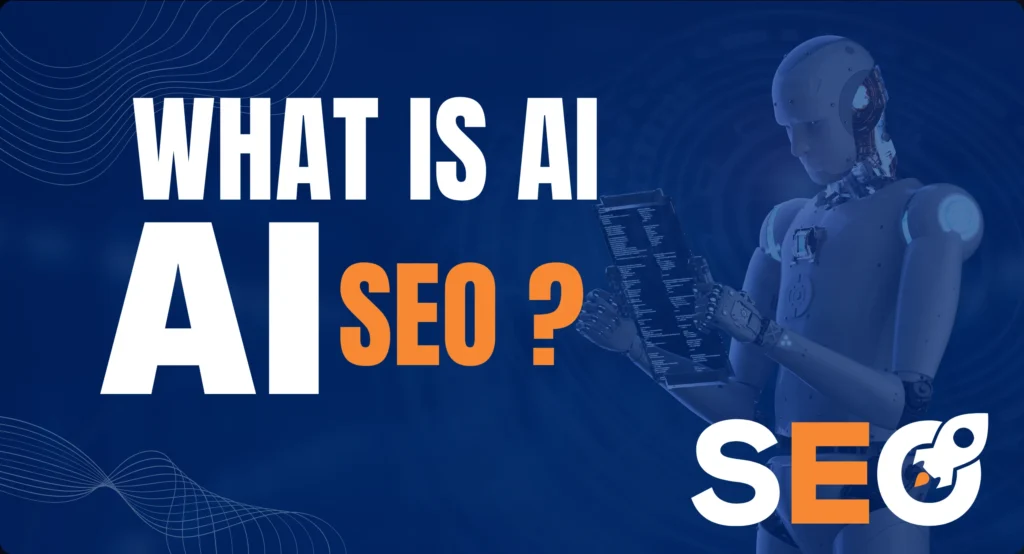
Why AI SEO Matters for Businesses
AI SEO is not just a passing trend—it’s a competitive necessity. Businesses that optimize early will:
- Be featured in AI-generated answers, increasing visibility.
- Build stronger brand authority since AI tends to favor credible sources.
- Capture more qualified leads by appearing in intent-driven search results.
- Future-proof their websites as search evolves beyond the traditional results page.
For industries like construction, remodeling, HVAC, and other home services—where competition is high and local search visibility is critical—adapting to AI SEO can mean the difference between being the go-to choice in your area or being overlooked entirely.
The Role of WordPress in an AI-First Search Era
As search engines evolve with artificial intelligence, businesses must rethink not only their SEO strategy but also their website platform. WordPress continues to stand out as the most powerful, flexible, and future-ready content management system (CMS) for businesses that want to thrive in this AI-driven era.
Why WordPress Remains the Best Platform for AI SEO
WordPress powers over 40% of websites on the internet, making it the most widely used CMS globally. Its popularity isn’t just about ease of use—it’s about adaptability. Unlike rigid website builders, WordPress allows full customization, which makes it easier to implement AI SEO strategies at both the technical and content levels.
Some key advantages of WordPress for AI SEO include:
- SEO-Friendly Architecture → Clean code and proper content hierarchy make it easy for AI models and search engines to crawl.
- Plugin Ecosystem → Tools like Yoast SEO, Rank Math, and Schema Pro simplify optimization for AI by enabling structured data, keyword insights, and readability improvements.
- Scalability → From small businesses to enterprise-level websites, WordPress can scale to handle growing demands.
- Content-Centric Focus → AI thrives on high-quality, structured content—and WordPress is built around content publishing.
In short, WordPress is more than just a CMS—it’s an adaptable framework that keeps businesses ahead as search evolves.
Clean Design and Structure: Why It Matters for AI SEO
One of the biggest challenges for AI-driven search engines is parsing through poorly structured or cluttered websites. If your content is buried in confusing layouts, AI models may skip over it when generating results. WordPress allows businesses to create clean, responsive designs that make content easy to read—for both humans and machines.
- Headings and Hierarchy: Proper use of H1, H2, and H3 headings creates logical structure. This helps AI determine what’s most important on a page.
- Internal Linking: WordPress makes it easy to build internal link networks, which show AI how your content connects across the site.
- Mobile Responsiveness: With more than 60% of traffic coming from mobile, responsive WordPress themes ensure your site is accessible to all users (and AI models consider this when evaluating authority).
A well-structured WordPress site doesn’t just improve rankings—it ensures your content is recognized as authoritative and trustworthy in AI-driven results.
The Power of Structured Data and Schema in WordPress
AI models don’t just read words—they interpret context. This is where structured data (schema markup) becomes critical. Schema helps AI understand what a page is about beyond the surface level. For example:
- A service page can be marked as “Local Business → Contractor” so AI knows it relates to construction services.
- A blog post can include FAQ schema, allowing AI assistants to directly pull answers into their generated results.
- Product or service pages can display reviews, ratings, and pricing directly in search results, boosting click-through rates.
WordPress plugins make schema implementation simple, meaning businesses don’t need advanced coding knowledge to prepare their websites for AI SEO.
Speed and Performance in WordPress
In an AI-first world, speed matters more than ever. AI models consider user experience metrics such as Core Web Vitals—page load speed, interactivity, and visual stability—when determining which sites to feature. WordPress offers numerous optimization tools:
- Caching plugins (like WP Rocket) to speed up load times.
- Image optimization tools to reduce file sizes without losing quality.
- Content Delivery Networks (CDNs) that improve global performance.
By ensuring a fast, stable WordPress site, businesses not only improve rankings but also reduce bounce rates and increase conversions.
Hypothetical Example: AI SEO in Action
Imagine a homeowner searching via Google’s AI: “Who is the best remodeling contractor near me?”
If your WordPress site is optimized with:
- Clear service pages
- Structured data (LocalBusiness schema)
- Reviews and testimonials marked up in schema
- Fast, mobile-friendly design
the AI is much more likely to pull information directly from your website into its answer. This visibility positions your business as the trusted choice, even before users click through.
AI SEO Strategies That Rynox Digital Implements
Adapting to the AI-first search era requires more than just surface-level SEO. At Rynox Digital, we combine WordPress expertise with advanced AI SEO strategies to ensure that our clients’ websites are not only discoverable but also trusted sources in AI-generated search results. These strategies go beyond keywords—they focus on intent, structure, authority, and experience.
1. Content Strategies for AI-Driven Results
Content has always been central to SEO, but in the world of AI, it plays an even more critical role. AI models thrive on high-quality, contextual, and well-structured content that directly answers user questions.
At Rynox Digital, we help businesses craft content that is:
- Conversational and Intent-Based → Writing in the natural, question-answer style that users employ when interacting with AI assistants.
- Long-Form and Comprehensive → Covering topics in depth so AI identifies the site as a valuable knowledge source.
- FAQ-Rich → Incorporating frequently asked questions with structured answers, increasing chances of being featured in AI-generated responses.
- Local and Industry-Specific → Optimizing for niche markets (e.g., construction, remodeling, HVAC) to ensure businesses show up in local AI-driven searches.
This type of content doesn’t just rank well—it positions our clients as go-to authorities in their industries.
2. Technical Optimization for AI SEO
AI models don’t just read your content—they analyze how your site is built and how efficiently it delivers information. Technical optimization is the foundation of AI SEO, and WordPress provides the flexibility to get it right.
Key strategies include:
- Schema Markup & Structured Data → Adding schema tags so AI understands context (e.g., services, locations, reviews).
- Core Web Vitals Optimization → Ensuring fast load times, mobile responsiveness, and stable visual elements.
- Clean Site Architecture → Using logical URL structures and internal linking so AI can easily crawl and map the site.
- Secure Protocols (HTTPS) → Demonstrating trust and credibility, both to users and AI.
With these improvements, our clients’ websites become machine-readable, which is crucial for AI-generated answers.
3. User Experience and Engagement Signals
AI-powered search doesn’t just rely on keywords—it considers how real people interact with your website. Metrics such as bounce rate, time on page, and engagement help AI determine whether your site truly satisfies user intent.
To improve these signals, we focus on:
- Intuitive Navigation → Designing layouts that make information easy to find.
- Interactive Features → Adding chatbots, calculators, or booking systems that increase engagement.
- Readable Formatting → Breaking down content with clear headings, bullet points, and visuals that AI and humans can both understand.
- Trust-Building Elements → Displaying testimonials, case studies, and certifications that reinforce credibility.
The better the user experience, the more AI considers your site as a reliable source worth recommending.
4. Local AI SEO Strategies
For many of our clients in construction and home services, local visibility is key. With AI-driven searches like “best electrician near me” or “top roofing contractor in Dallas,” local businesses must be optimized for geo-targeted AI results.
We implement:
- Google Business Profile Optimization → Keeping listings updated with accurate details, photos, and reviews.
- Local Schema Markup → Highlighting business type, service area, and contact info in structured data.
- Review Management → Encouraging and showcasing positive reviews, since AI favors trustworthy businesses.
- Localized Content → Publishing blog posts and landing pages tailored to specific cities or neighborhoods.
This ensures our clients consistently appear in AI-generated local recommendations—right where their customers are searching.
5. Continuous Optimization and Monitoring
AI SEO is not a one-time task—it’s a continuous process. AI models and algorithms evolve, and so must your strategy. At Rynox Digital, we:
- Monitor Algorithm Shifts → Staying updated on changes in Google SGE, Bing AI, and emerging platforms.
- Track AI Search Visibility → Using advanced tools to see when clients appear in AI-driven results.
- Refine Content and Structure → Updating pages to maintain relevance and authority.
- Test New Approaches → Experimenting with prompts, FAQs, and schema enhancements to improve AI discoverability.
This proactive approach ensures our clients aren’t just keeping up with AI SEO trends—they’re staying ahead of the curve.
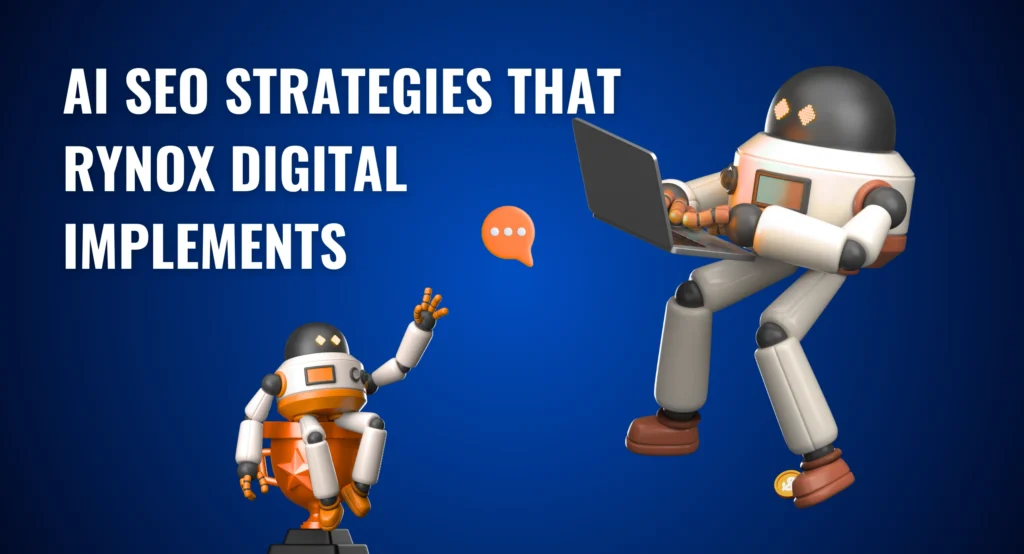
Why These Strategies Work
The combination of content depth, technical optimization, user experience, and local focus creates a strong online foundation that both humans and AI search systems trust. By aligning websites with how AI understands and recommends content, Rynox Digital helps businesses secure more visibility, more leads, and more long-term authority.
Building Brand Authority with AI SEO
In the age of AI-driven search, authority is everything. Search engines and AI assistants no longer just look for keyword matches—they prioritize content and businesses that demonstrate expertise, trustworthiness, and credibility. This aligns with Google’s E-E-A-T framework (Experience, Expertise, Authoritativeness, and Trustworthiness), which is now amplified by AI models that pull information from the most reliable sources.
At Rynox Digital, we understand that building authority is more than just a ranking factor—it’s the foundation of long-term success in the digital landscape.
Why Brand Authority Matters in an AI-First World
When a user asks an AI tool “Who’s the best WordPress agency for small businesses?” or “Which contractor in Philadelphia offers reliable remodeling?”, the AI doesn’t just pull random links. Instead, it generates answers based on brands that consistently produce high-quality, trustworthy content.
This means that businesses with strong brand authority are more likely to:
- Be recommended in AI-generated results
- Dominate local and industry searches
- Win customer trust before the first click
- Convert higher-quality leads
Without brand authority, even well-optimized websites risk being overshadowed by competitors who are recognized as leaders in their field.
How Rynox Digital Builds Brand Authority
We take a multi-layered approach to help businesses establish themselves as trusted voices in their industries.
- Thought Leadership Content
- Creating blogs, guides, and resources that educate rather than just sell.
- Positioning clients as experts by covering topics their competitors overlook.
- Leveraging industry insights to showcase unique knowledge and experience.
- Strategic Content Distribution
- Promoting content across multiple channels (social media, directories, press releases).
- Ensuring visibility where target audiences—and AI models—can discover and reference it.
- Trust Signals
- Displaying testimonials, reviews, certifications, and case studies prominently on websites.
- Implementing schema to make these signals visible to AI crawlers.
- Consistent Branding
- Aligning website design, tone of voice, and messaging for a unified, professional identity.
- Making sure that when AI encounters the brand across the web, it recognizes consistency.
E-E-A-T and AI SEO: A Winning Combination
AI SEO goes hand-in-hand with Google’s E-E-A-T principles. When websites demonstrate experience, expertise, authority, and trust, they’re more likely to be cited by AI models in their responses.
For example:
- A remodeling contractor with detailed case studies and 5-star reviews is more likely to be featured in AI answers.
- A digital agency like Rynox Digital that consistently publishes guides on AI SEO and WordPress design becomes a go-to reference for AI models.
The more proof of expertise and trust a business provides, the higher its chances of being favored in AI-driven search.
Long-Term Benefits of Authority Building
Brand authority isn’t built overnight—but once established, it creates a flywheel effect:
- More visibility → More clients → More reviews/testimonials → More trust → Even more visibility.
This cycle ensures that businesses not only adapt to today’s AI SEO demands but also future-proof their growth as search technology continues to evolve.
The Rynox Digital Advantage
At Rynox Digital, we know that thriving in today’s AI-driven search environment requires more than just a good-looking website. It takes a strategic blend of WordPress expertise, AI SEO strategies, and a deep understanding of business goals. That’s what sets us apart.
Why Businesses Choose Rynox Digital
- WordPress Specialists → We design and develop websites that are not only visually striking but also optimized for SEO from the ground up.
- AI SEO Expertise → We stay ahead of AI-driven changes in search, ensuring our clients are always visible in AI-powered results.
- Industry Focus → We specialize in helping construction, remodeling, and home service businesses, tailoring strategies that match real-world needs.
- Data-Driven Results → Every decision we make is backed by analytics, performance metrics, and measurable outcomes.
- Long-Term Partnerships → We don’t just build websites—we build relationships, offering ongoing support and optimization.
How We Future-Proof Businesses
AI search is evolving rapidly, but our process ensures clients are always prepared:
- Proactive Monitoring → Tracking shifts in AI algorithms and updating strategies quickly.
- Content Evolution → Continuously refining blog posts, landing pages, and resources to remain relevant and authoritative.
- Technical Upgrades → Implementing the latest WordPress and SEO tools to maintain speed, security, and functionality.
- Brand Authority Growth → Helping clients consistently position themselves as leaders in their local markets and industries.
The result? Businesses that partner with Rynox Digital don’t just survive the AI SEO shift—they thrive.
Conclusion: The Future Belongs to AI-Ready Businesses
The future of web design and SEO is no longer about ranking in static lists—it’s about being the trusted source that AI assistants recommend. With the rise of AI-powered search, businesses that embrace AI SEO strategies and build authority will dominate, while those that resist change will fade into obscurity.
WordPress remains the ideal platform for navigating this shift, and when paired with the right strategies, it can make businesses more discoverable, credible, and competitive than ever before.
At Rynox Digital, we combine deep WordPress expertise, innovative AI SEO strategies, and a client-first approach to help businesses stay ahead of the curve. Whether you’re a contractor, service provider, or growing brand, our team can transform your website into a future-proof growth engine.
Ready to stay ahead in the AI SEO era?
Partner with Rynox Digital today and future-proof your online presence.

